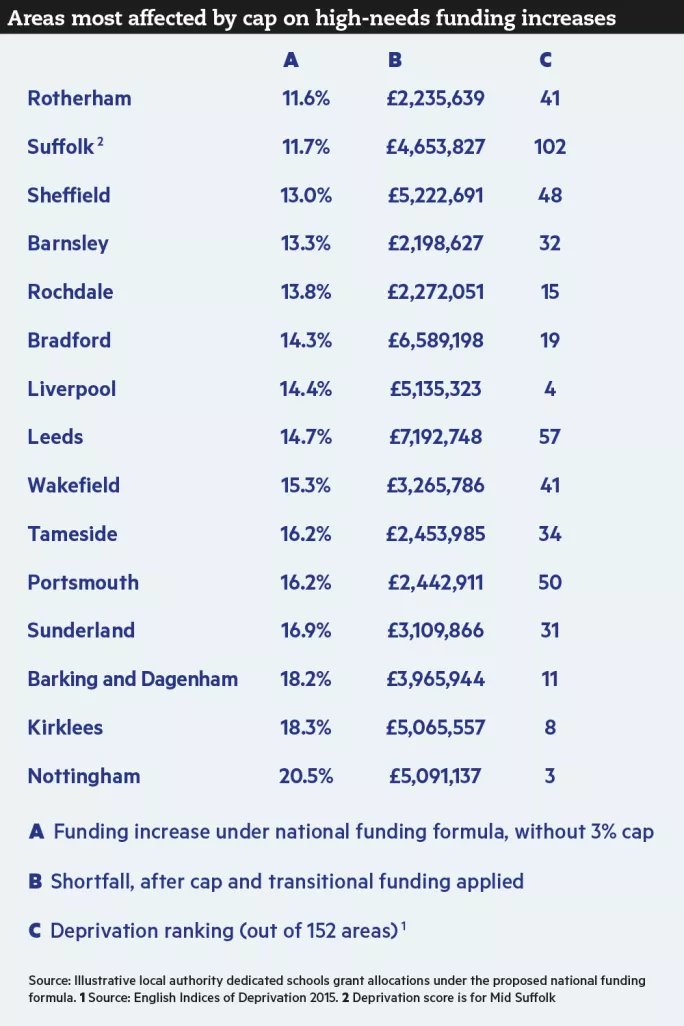Pupils with complex special educational needs and disabilities are to miss out on £124 million in extra money, because of the way government is introducing funding reforms, TES can reveal.
The “high needs” cash for pupils with SEND would have been distributed to schools across 52 local authorities as part of the money they were due under a new government national funding formula. It would have meant double-digit increases for 15 areas, a TES analysis shows. All but one of these local authorities has higher than average deprivation levels, and six are among the 20 most deprived areas in the country.
But the increases will instead be capped at 3 per cent because the Department for Education says that it needs to keep introduction of the funding system “affordable”.
Huge challenges
Valentine Mulholland, head of policy at the NAHT headteachers’ union, said: “What worries us most is that it is some of the local authorities facing the greatest challenges that are missing out the most.
“And, of course, it’s not the local authorities missing out but the most vulnerable children in their schools and academies.”
Nottingham would have receive a 20.5 per cent funding boost if it were not for the cap, which reduces its allocation by £5 million. And schools in Leeds are losing out on more than £7 million.
Jane Pepa, interim deputy headteacher and SEND coordinator at New Heights High School in Liverpool - another area that is losing more than £5 million - said: “There seems to be nothing ‘fair’ about [the formula].”
‘There seems to be nothing “fair” about the formula’
Previously, local authorities have subsidised high-needs funding. But this may not be possible under the new system, which would involve money being transferred to schools directly from the government from 2019-20.
Malcolm Trobe, interim general secretary of the Association of School and College Leaders, said the findings highlighted a “big problem” that merited further investigation. “There are specific cases that will need special consideration [by the DfE] given the nature of the needs they have,” he added.
The plans, which are out for consultation, would also protect local authorities from funding falls on their current spending.
The “cap” was necessary to make this affordable, the Department for Education said.
The DfE was contacted for comment.
@CharlotteSantry

